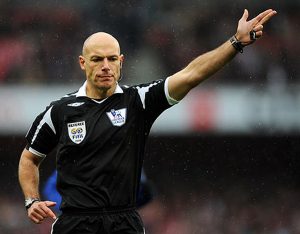 Imagine you’ve thought you were married for a decade and all of a sudden your spouse denies that you were ever married at all. The Virginia Supreme Court (the “Court”) recently decided just such a case in Levick v. MacDougall. The central issue in that case was whether a married couple must first obtain a marriage license before “solemnizing” their marriage.
Imagine you’ve thought you were married for a decade and all of a sudden your spouse denies that you were ever married at all. The Virginia Supreme Court (the “Court”) recently decided just such a case in Levick v. MacDougall. The central issue in that case was whether a married couple must first obtain a marriage license before “solemnizing” their marriage.
The facts were straightforward: Richard and Deborah were “married” on December 21, 2002 at a celebration at Richard’s house with friends and family. The officiant, on the day of the “wedding”, discovered that Richard and Deborah had not obtained a marriage license. The officiant suggested that they go forward with the ceremony anyway and that the couple obtain a marriage license as soon as possible. Around two weeks later, on January 6, 2003, the parties went to the local courthouse to obtain a marriage license. They then mailed it to the officiant. The officiant received the marriage license, filled it out on January 21, 2003, and wrote on the certificate that Richard and Deborah were married on January 21, 2003.
CONTINUE READING . . .

 Actor Alan Thicke – best known for his role on the TV show
Actor Alan Thicke – best known for his role on the TV show  Back in June of this year, the Virginia Supreme Court handed down a ruling in an estate dispute case that, while it didn’t particularly break new legal ground, provides a helpful overview of the current state of Virginia law regarding Virginia’s Slayer Statute as well as claims contesting a deed of gift on the basis of undue influence.
Back in June of this year, the Virginia Supreme Court handed down a ruling in an estate dispute case that, while it didn’t particularly break new legal ground, provides a helpful overview of the current state of Virginia law regarding Virginia’s Slayer Statute as well as claims contesting a deed of gift on the basis of undue influence. The legal landscape in Virginia regarding claims for legal malpractice against estate planning attorneys changed significantly this past year when the Virginia General Assembly adopted legislation to address the issues raised in the Virginia Supreme Court’s Thorsen decision. This blog post discusses some implications of, and observations about, the new legislation, which was adopted as
The legal landscape in Virginia regarding claims for legal malpractice against estate planning attorneys changed significantly this past year when the Virginia General Assembly adopted legislation to address the issues raised in the Virginia Supreme Court’s Thorsen decision. This blog post discusses some implications of, and observations about, the new legislation, which was adopted as  On May 15, 2017, the Supreme Court of the United States handed down its opinion in
On May 15, 2017, the Supreme Court of the United States handed down its opinion in  As trust decanting becomes increasingly popular, we can expect to see more disputes and litigation regarding trust decanting. This blog post examines some of the main issues that will likely arise in those disputes.
As trust decanting becomes increasingly popular, we can expect to see more disputes and litigation regarding trust decanting. This blog post examines some of the main issues that will likely arise in those disputes. How can a person remove a trustee of a trust? Depending on the language of the trust, there could be several ways. This blog post summarizes some of the options, and provides an overview of things to consider when a person wants to remove a trustee.
How can a person remove a trustee of a trust? Depending on the language of the trust, there could be several ways. This blog post summarizes some of the options, and provides an overview of things to consider when a person wants to remove a trustee.
 Back in the summer I wrote a
Back in the summer I wrote a  The vast majority of people have no idea that Virginia law recognizes oral contracts to make a will. As a result, people often miss out on asserting a claim to an inheritance because they didn’t know that they had one to begin with. This blog post provides an overview of Virginia law on this issue. I’ll follow-up this blog post with another one in the coming weeks about practical tips for how people can optimize their chances of winning on a claim for an oral contract to make a will.
The vast majority of people have no idea that Virginia law recognizes oral contracts to make a will. As a result, people often miss out on asserting a claim to an inheritance because they didn’t know that they had one to begin with. This blog post provides an overview of Virginia law on this issue. I’ll follow-up this blog post with another one in the coming weeks about practical tips for how people can optimize their chances of winning on a claim for an oral contract to make a will.

